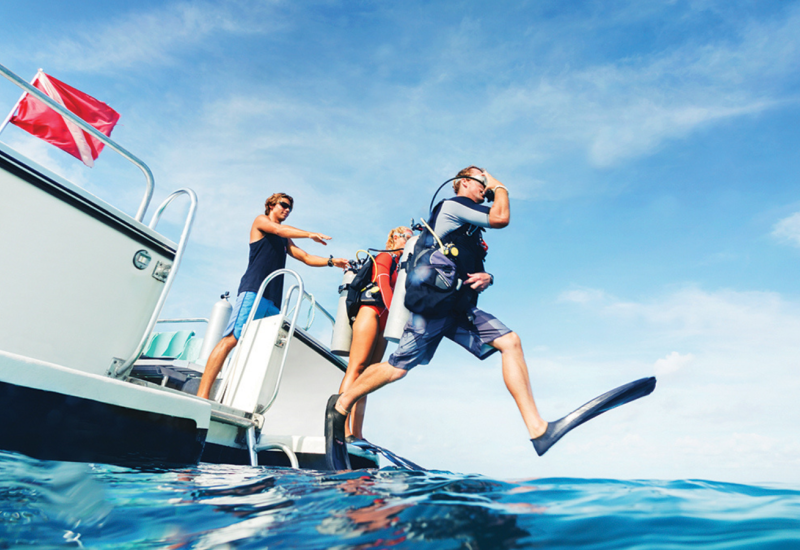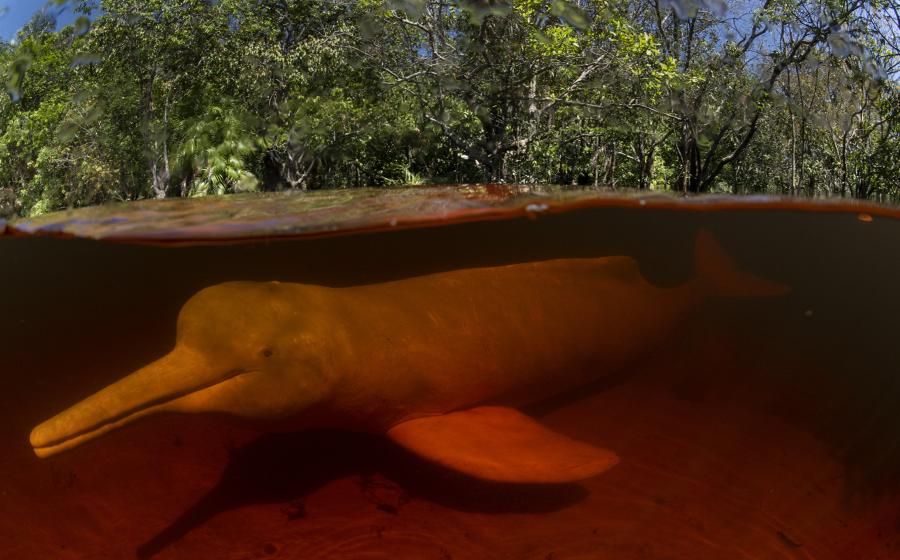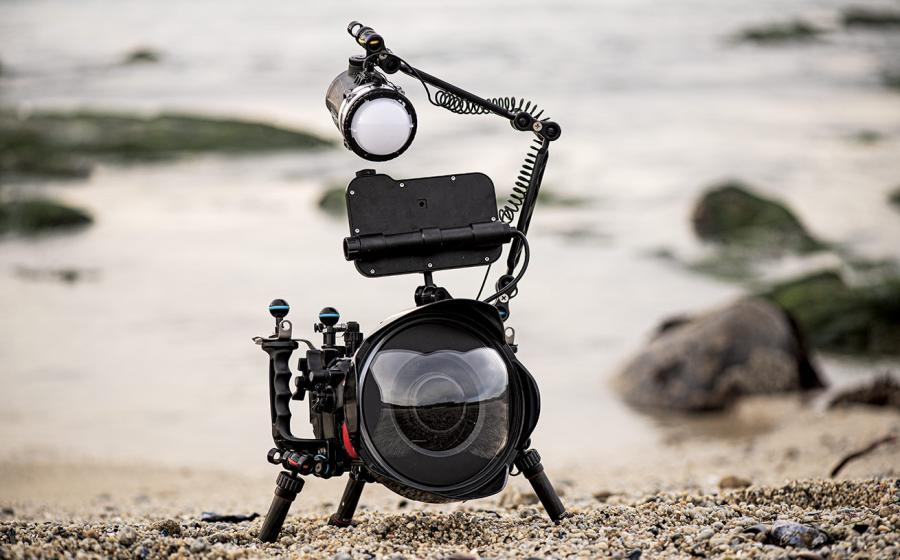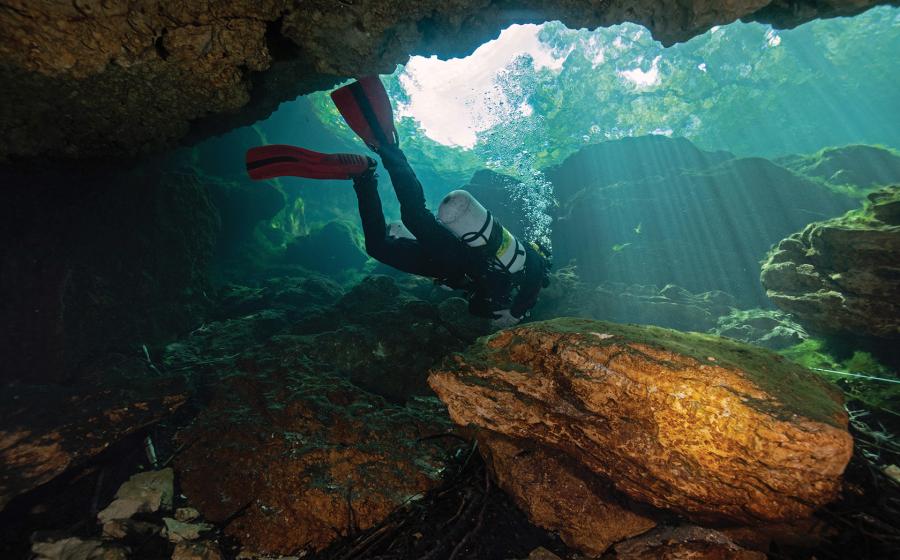How To Make a Go/No-Go Diving Decision
If you’re sick before leaving for your trip, see a physician. He or she can help you determine if you’re healthy enough to dive. But if you arrive at the resort and then get sick, ask yourself these questions:
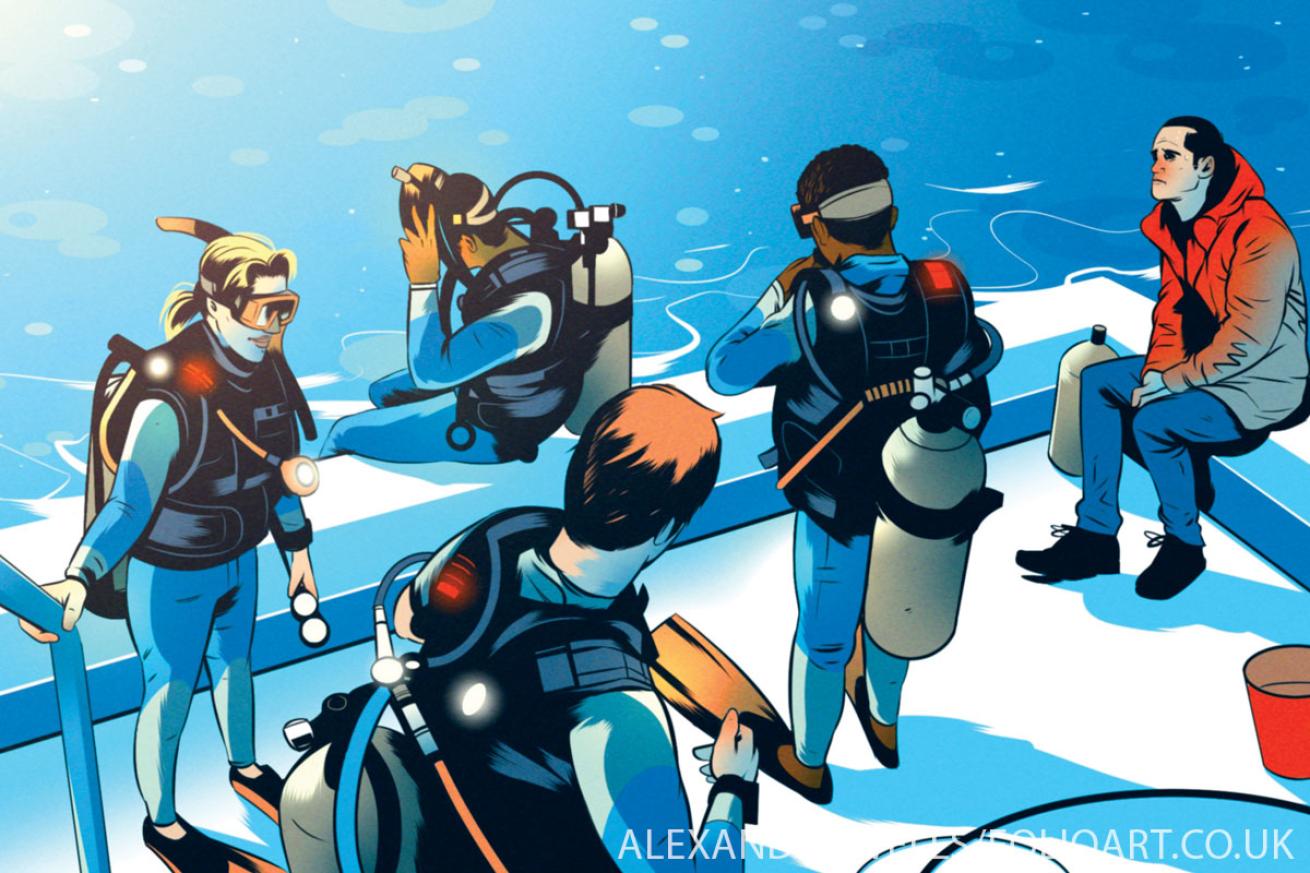
Alexander Wells/Folioart.co.ukAs painful as it may seem, sitting out a dive is the safest call if you're unable to equalize your ears or sinuses.
• Can you breathe easily?
• Can you equalize your ears easily?
• Do you have a fever, chills or sweats?
• Are you coughing or blowing your nose frequently?
• Do you have chest congestion?
• Are you fatigued?
• Are you taking medicine to relieve your symptoms?
How to Know When You Can Dive with a Cold
Keep in mind what the experts at DAN have to say about antihistamines and decongestants:
“Antihistamines counteract the symptoms of allergies, colds and motion sickness but may have side effects. In therapeutic doses, these side effects may include dryness of the mouth, nose and throat; visual disturbances; drowsiness; or an undesired sedation or depression — all significant factors that, together or separately, can affect the safety of a dive. Decongestants may cause a mild central nervous system stimulation and can also cause numerous side effects such as nervousness, excitability, restlessness, dizziness, weakness, and a forceful or rapid heartbeat.”




